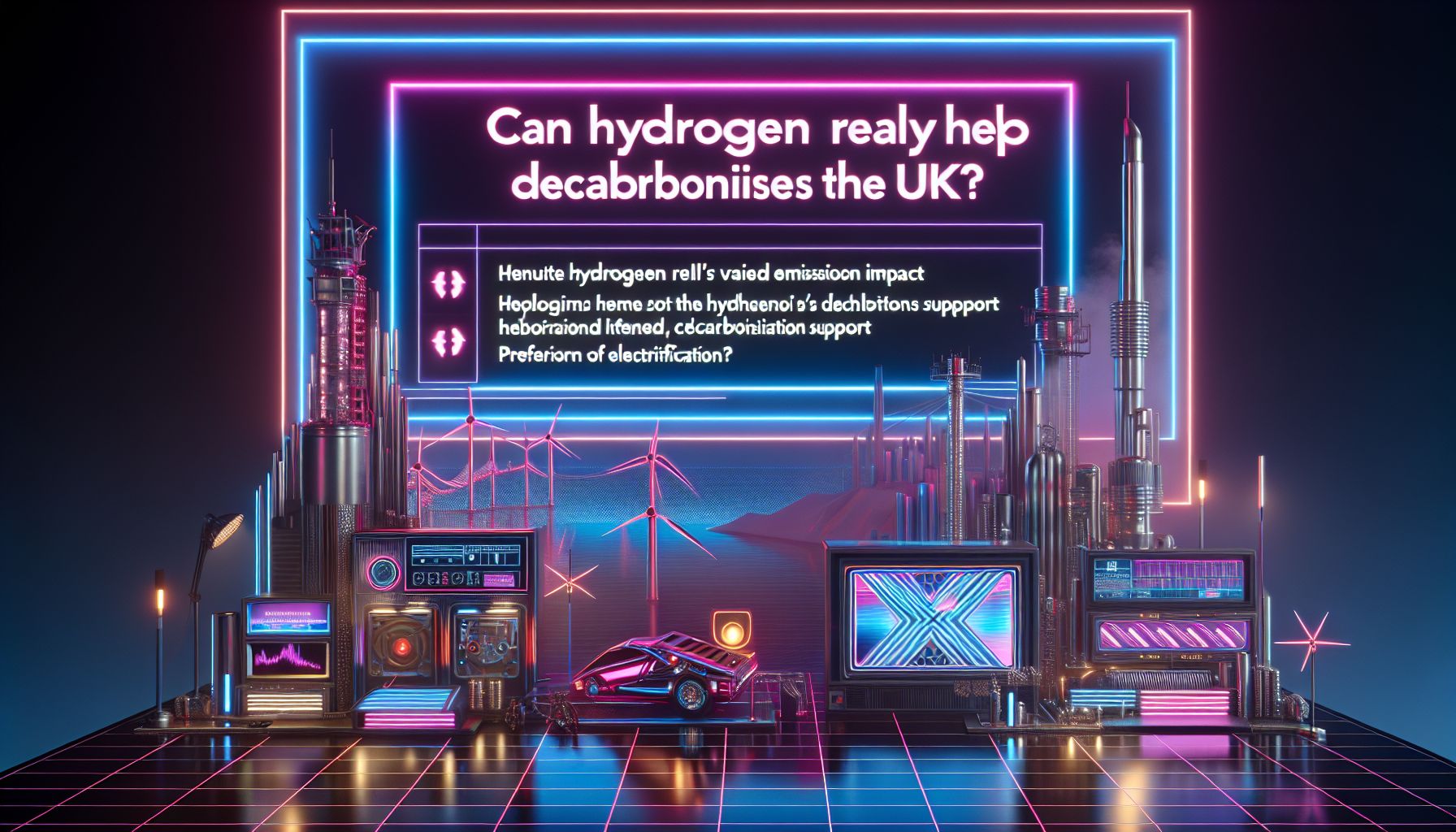Can Hydrogen Really Help Decarbonise the UK?

London, Tuesday, 15 July 2025.
Hydrogen’s emission impact varies greatly with production method. While it can support decarbonisation, electrification is often more efficient. Some uses for hydrogen are better than others. Let’s break it down.
Introduction to Hydrogen’s Role
So, the UK is gazing at hydrogen, the new buzzing element, hoping it will help turn down our carbon splurge. But, here’s the catch; hydrogen isn’t always the white knight in shining armour we wish it to be. Its carbon footprint depends heavily on how it’s made. Think of it like choosing between a bike and a gas-guzzler based on how fast you actually need to go [1].
The Green Giant vs. Blue’s Blues
There’s green hydrogen, which is the Superman of environmental friendliness. It comes from breaking down water using renewable energy [1]. Picture it like using a solar-powered blender! Then there’s blue hydrogen—made from natural gas with carbon capture. Sounds cool, right? But it can still be a bit of a heartbreaker if you consider the methane emissions sneaking up on us [1].
Electrification: The Fast Lane
Now, what if I told you that plugging in a toaster might make more sense for our carbon-conscious future? Prioritising electrification could actually save more emissions than hydrogen in many cases. We’re talking about cutting down emissions by up to 280 Mt CO2e per annum in the UK by smartly combining electricity and hydrogen use [1].
The Naughty List: When Hydrogen is a No-Go
Some applications just don’t get along with hydrogen. Using it for heating homes, for instance, doesn’t hold a candle to heat pumps when comparing emissions [1]. It’s like trying to use a sledgehammer when you just need a flyswatter! The smart route is saving hydrogen for places where electricity falters, like flying a jet or creating fertiliser [1].
The Import Dilemma
But wait, before you think about importing green hydrogen like it’s the next big exotic fruit—it’s tricky. Transporting this green wonder like shipping avocados from Africa isn’t always a climate-friendly feat, adding up emissions like there’s no tomorrow [1]. Local production, especially if you’ve got offshore wind under your hat, might just be our clean ticket [1].
Conclusion: A Few Humble Suggestions
There’s no one-size-fits-all in the hydrogen-electricity scuffle. Wise choices could really trim down our carbon waistline. Electrons (read: electricity) could do the heavy lifting, saving hydrogen’s superpowers for those tough spots like jetting us across the Atlantic or sprucing up the fertiliser game [1].
Bronnen
- pubs.acs.org
- www.nature.com
- decarbonfuse.com
- pubs.acs.org
- pubs.acs.org
- pubs.acs.org
- pubs.acs.org
- www.oxfordenergy.org